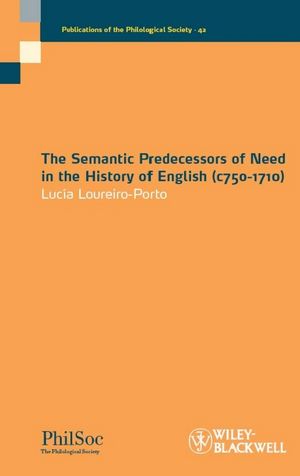The Semantic Predecessors of Need in the History of English (c750-1710)ISBN: 978-1-4051-9270-5
Paperback
292 pages
September 2009, Wiley-Blackwell
 |
||||||
In the history of English at least five verbs have been found to
mean ‘need’: þurfan, beþurfan, need, behove
and mister. By adopting a corpus-based approach, this book studies
all of them diachronically, from the origins of the language
(c.750) to the end of the early Modern English period (1710).
- Offers a detailed analysis of the meaning of these five verbs which have been found to mean ‘need’, filling a gap in the literature on modality and shedding new light on grammaticalization theory
- Spans the period c.750 to 1710, adopting a corpus-based approach to study the verbs diachronically
- Explores the evolution of necessity meanings in English, identifying regular semantic changes and challenging some well-established statements
- Provides a detailed grammaticalization analysis, paying attention to the different Present-Day-English modal classes, including marginal and emerging modals



